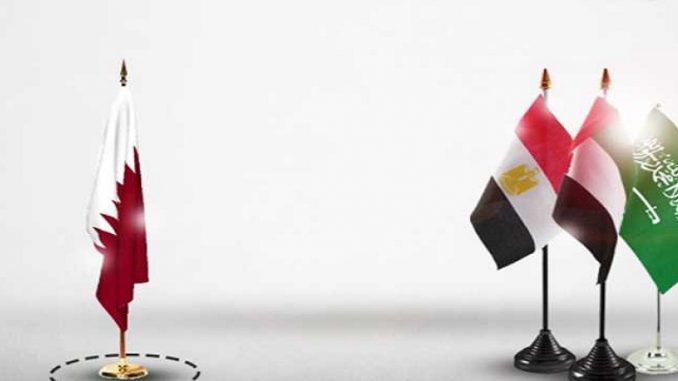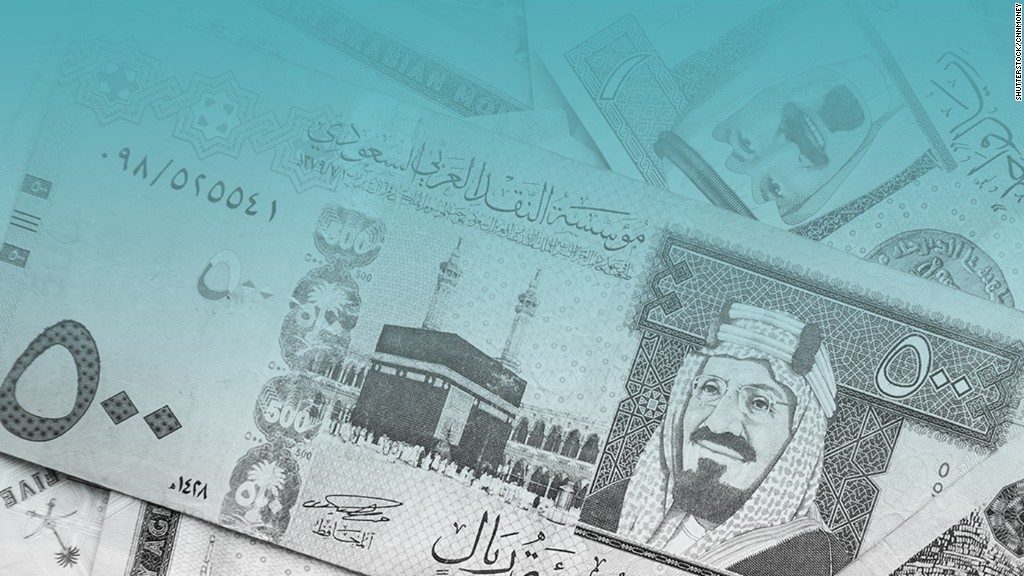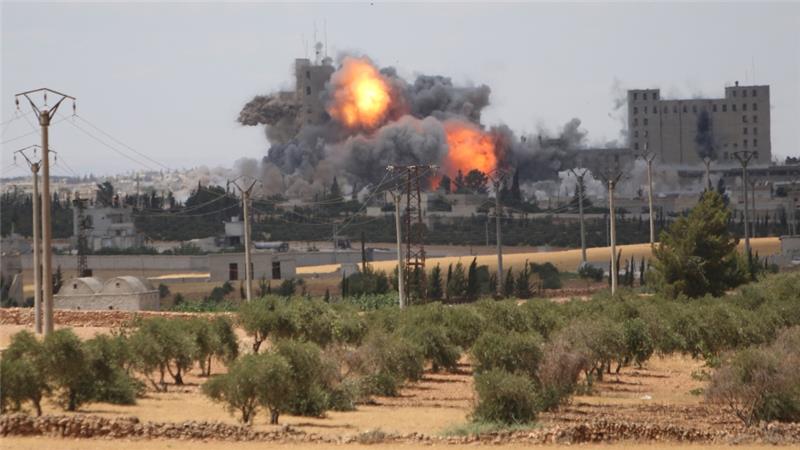
As the Gulf crisis marks its one year anniversary, settlement seems as distant as ever. Both sides seem to have come to terms with the new reality.
While the crisis had certainly been brewing for years, the timing of its outbreak was surprising to many, first and foremost, to Qatar. Only two days after Qatari Emir Sheikh Tamim bin Hamad had returned from Riyadh, where he had participated in the summit with President Donald Trump, Saudi and Emirati media outlets broke news of statements attributed to the Qatari sovereign in which he had presumably taken the side of Iran.
Following the sudden media offensive, Saudi Arabia, the United Arab Emirates (UAE), Bahrain and Egypt announced severing of diplomatic ties with Qatar, in addition to shutting down of their airspace to Qatari flights. Riyadh announced closure of the Salwa/Abu-Samra border crossing, Qatar’s only land outlet.
While foreign ministers of the four states later denied it, Emir of Kuwait Sheikh Sabah Al-Sabah, during his press conference with President Donald Trump at the White House, said months later that in the early days of the crisis, mediators succeeded in convincing the Saudi-led coalition not to pursue the “military option.”
Whether Saudi Arabia and its allies intended to invade Qatar or not remains debatable. What is certain is that the four countries had designed a blitzkrieg style offensive, with or without a military component. Saudi Arabia, the UAE, Bahrain and Egypt were probably hoping that a surprise offensive would throw Qatar off balance and force it to offer concessions, 13 of them, as outlined by a list that the four countries put out.
Doha was indeed caught off guard, and was forced to turn to its other friends, mainly Turkey, Oman and Kuwait, in an attempt to salvage its lines of imports. The Qatari Central Bank had to act quickly to absorb the financial shock, and reached into the nation’s deep-pocketed sovereign fund to liquidate hard currency and keep the country’s economic machine oiled.
The two sides then engaged in diplomatic battle that was fought in every capital around the world.
The U.S., Kuwait, and, to an extent, Turkey sprung to mediation. The Saudi-led coalition put out 13 demands that they said would constitute the only way out for Doha. The 13 demands could be summarized into four, including Qatar 1) severing all ties with Iran, 2) closing a Turkish military base on its territory, 3) shutting down Al-Jazeera satellite TV and cutting funds to other media outlets and 4) classifying the Muslim Brotherhood as a terrorist group and repatriating any of the group’s rank and file who are citizens of any of the four countries, alongside cracking down on all funds from Qatar to Islamist groups around the region.
Qatar counter-argued that both the UAE and Egypt enjoyed diplomatic ties with Iran, which made it odd for nations with ties to Tehran to ask other countries to cut such ties. Qatar also argued that the remaining Gulf Cooperation Council (GCC) countries, namely Kuwait and Oman, also had ties with Iran.
Shutting down Al-Jazeera and other Qatari-funded media outlets was a point that mediators, including Kuwait and Washington, rephrased. Mediating capitals believed that no government should have the power of shutting media in other countries, or else, if Al-Jazeera was shutdown, then what will hold back the Saudi-led coalition from demanding the shutdown of other media outlets across the region. Instead, Kuwait suggested that both sides put an end to the mutual media offensive campaigns that government-funded media outlets were running.
Qatar did concede on funding of Islamist groups. When President Trump received Sheikh Tamim in Washington in the White House in April, the U.S. president praised his guest for Doha’s cooperation in cracking down on funding of terrorism. “Those countries are stopping the funding of terrorism,” Trump said next to an attentive Sheikh Tamim, “and that includes the UAE; it includes Saudi Arabia; it includes Qatar.”
Despite working with Washington to end the funding of terrorism, Doha did not proclaim the Muslim Brotherhood a terrorist organization. The group, Qatar argued, operates legally — and even has some of its officials elected to parliament — in other Arab countries, such as Kuwait, Jordan, Lebanon, Tunisia, and Morocco.
Finally, on the Turkish base in Qatar, Doha argued that the issue was a sovereign Qatari decision, and that no country should be able to dictate anything on the foreign ties of other countries.
Throughout the year, mediators have tried hard to end the Gulf rift. The closest the mediation efforts got to settlement was when President Trump spoke to the leaders of Qatar, Saudi Arabia, and the UAE. After the call, Doha reached out to Riyadh, and Sheikh Tamim spoke to Saudi Crown Prince Muhammad bin Salman. The call seemed to have been cordial, and both sides put out a statement in which they said that their leaders left it to their aids to settle things and organize a meeting.
Not so soon. The Qatari emir called the Saudi crown prince, but did not call Emirati Crown Prince Muhammad bin Zayed. This, the four countries interpreted as Qatari politicking and attempt to divide-and-conquer. Hours after the cordial readout from Doha and Riyadh, the Saudis reversed their position and accused Qatar of persisting with its same old behavior.
After the Trump call, Washington and Kuwait renewed their mediation efforts, and Kuwait managed to convince all parties to attend a GCC summit it hosted. As the region held its breath, Riyadh, Abu Dhabi and Manama sent their foreign ministers, instead of their crown princes, to participate in the summit, thus aborting another effort at reconciliation.
With mediation efforts failing, one after another, both parties dug in their heels and intensified their media offensive against one another, next to their lobbying wars in world capitals. For the Saudi-led coalition, the effort against Qatar has yet to bear fruit, other than Doha’s cooperation in cracking down on the funding of terrorism. For Qatar, the old saying applies: What does not kill you only makes you stronger.
By: Hussain Abdul Hussain: Washington-based political analyst. published in Anadolu agency



